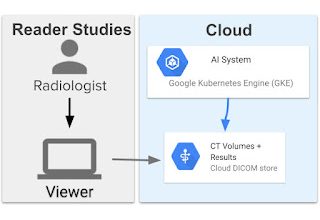Top 5 Benefits of Zero Trust Network Access for Small and Medium Businesses

With the increasing advancement in digital platforms and applications, small and medium-sized businesses (SMBs) are at high risk of cyber threats such as data breaches, ransomware attacks, and many others. However, one disadvantage of SMBs is that they are unable to invest heavily in security solutions and hence they are at high risk. That is where Zero Trust Network Access (ZTNA) steps in. ZTNA is also a strong and efficient model to protect the resources of a company as it provides the necessary measures to ensure that each user and device that connects to the network are legitimate.
For SMBs, the implementation of ZTNA can minimize the chances of attacks and at the same time improve the network performance, and conformance. ZTNA works on the assumption of ‘never trust, always verify’ which states that no user or device should be trusted irrespective of the location they reside within the network. Now let us look at the five advantages that ztna can offer to small and medium enterprises.
1. Strengthened Security and Protection from Threats
While the traditional perimeter security model regards anyone inside the network as trusted, ZTNA constantly authenticates every user and device that wants to access resources, no matter their location.
For small and the medium sized businesses this means fewer loopholes and therefore fewer ways that cybercriminals can gain access into the system. ZTNA makes sure that only authorized and authenticated users are granted access to certain resources thus minimizing the risk of penetration from insiders. It also confines the movement within the network; it is the prevention of the flow from one part of the network to another, this means that even if a hacker has penetrated the network, they cannot easily transfer to other parts of the network in the quest of valuable data.
Furthermore, ZTNA can be coupled with other features such as threat detection systems which will help the business identify threats and address them within a given time frame. This constant check and supervision help to mitigate the chances of malware, phishing and data breach that are emerging threats to SMBs.
2. Remote Work and Secure Access Support
Traditional VPNs have been in use for remote access for some time but they present challenges with scaling and the security of the network. VPN means that once the user has been authenticated, he or she is able to access the whole network and this may lead to leakage of important information to anyone who may come across it.
On the other hand, ZTNA is more flexible and secure than the traditional network because of the ability to provide precise control over access. ZTNA means that workers are provided with access to specific applications and resources that they require for their job instead of the whole network. This help in reducing the chances of data leakage and to ensure that vulnerable systems are shielded.
ZTNA also does not present the configuration complexity that is characteristic of conventional remote access technologies. Since ZTNA is more often than not cloud-based, it means that SMBs are able to offer secure remote access to their employees with ease and without the need for costly equipment or time-consuming configurations.
3. Scalability and Flexibility for Businesses
Small and medium businesses are growing and they require security systems that are also growing with them. Another advantage of ZTNA is its flexibility and therefore it is suitable for SMBs that expect frequent changes in their employees or network.
In ZTNA, it becomes very simple to include or exclude users and devices to or from the network without affecting the overall architecture of the security. This is particularly useful for organizations with employees working from home, contractors or seasonal workers since ZTNA enables the management of access on an as-needed basis. Thanks to ZTNA which offers zero-trust network access, enabling organizational flexibility with security is not an issue anymore.
Besides, ZTNA offers support for different cloud-based applications and services that enable SMBs to safely grow their dependence on the cloud. Since more and more companies are using cloud solutions, it is crucial to have a security model that can work well with cloud environment. ZTNA offers this level of flexibility as organisations can easily extend security policies to cloud services without requiring complicated set up.
4. Cost-Effective Security Solution
Due to constraints on the budget, ZTNA is a more economical solution for SMBs as compared to conventional security models. Strong cybersecurity measures can be costly at times especially when it comes to the hardware and the cost of maintaining on-premise solutions. On the other hand, ZTNA is hosted in the cloud, which eliminates the necessity to spend a lot of money on equipment and equipment maintenance.
Thus, by using ZTNA, SMBs can exclude the costs of the purchase and maintenance of physical security appliances including firewalls and VPN concentrators. Instead, they can use a cloud-based service that will always be updated with new security patches and will also be maintained. Also, ZTNA does not require businesses to replace their security tools since they can be integrated with the existing tools.
Furthermore, having many of the ZTNA solutions being scalable and operating on the pay-as-you-go model, businesses only have to pay for what they require, which can be particularly useful for fast-growing companies.
5. Benefits of Improved Compliance With Security Regulations
GDPR, CCPA, and HIPAA are some of the data privacy laws that demand companies to protect customers’ information and limit data access.
Small and medium-sized businesses are often faced with the problem of compliance since they usually do not have specialized security departments and tools. ZTNA enhances compliance by presenting an ordered methodology of access management and data protection. Due to the strict authentication and access control on ZTNA, it ensures that all data is protected in accordance with the set legal standards.
Also, monitoring and logging functions of ZTNA are consistent which enables enterprises to have records that can be used in compliance checks and to generate compliance audit reports. This is useful for SMBs to be in line with the ever-changing regulations and assure the business that their information is safe.
Final Notes
Zero Trust Network Access (ZTNA) is becoming increasingly popular and necessary for small and medium businesses. Here are the reasons. As a new approach to secure network access ZTNA offers improved security, remote access, scalability, cost efficiency, and compliance with regulatory frameworks. Thus, with the help of the ZTNA approach, SMBs can ensure the security of their digital assets, protect the information they possess and minimize the likelihood of cyber threats in the face of a growing number of threats in the digital sphere.
The post Top 5 Benefits of Zero Trust Network Access for Small and Medium Businesses appeared first on Datafloq.




